This piece originally appeared in Fortune.
The 2016 election has just been too divisive.
For many Americans, the 2016 presidential election campaign has been the most unsettling we have ever witnessed. Our parties and their champions have demonized the opposition in ways that recall darker times. And astonishingly, getting through election day no longer seems to promise relief: There are hints of open rejection of election results, serious prospects of impeachment trials beginning practically before the 45th president is sworn in, and little hope for a return to a gentler political climate.
So is there any chance that Tuesday’s winner will be able to lead the country toward unification and functional policymaking? Both Donald Trump’s and Hillary Clinton’s most loyal backers say that if their candidate is elected, they’ll be able to perform this feat. What would it take for them to be right?
Some observers are confident that Democrats and Republicans could find a way to work with each other if only they made a serious effort to do so. The implication is that our recent years of gridlock can be explained mostly by inadequate good faith efforts at compromise. Each side has their favorite piece of evidence showing the other’s selfishness: Democrats cite Republican Senate Majority Leader Mitch McConnell’s 2010 statement that Republicans’ top priority should be making President Obama a one-term president. Republicans decry Rahm Emanuel, Obama’s former chief of staff, who was described in Bob Woodward’s The Price of Politics as approaching the 2009 stimulus bill negotiations with the mantra: “We have the votes. Fuck ’em.” Others are happy to wish a pox on both houses.
But the truth is that the forces dividing Democrats from Republicans—and, as the intense presidential primaries this year revealed, even factions within each party from their own co-partisans—are too strong to be overcome by force of will, or by a turn toward bourbon-fueled backroom deals. The mutual distrust so evident among the political class in Washington only reflects a genuine chasm that has opened up between different communities in recent years.
Well, wait a minute: Weren’t differences over the new federal government in the 1790s, slavery in the 1850s, the Great Depression in the 1930s, and segregation in the 1960s every bit as profound as those we see today, and weren’t George Washington, Abraham Lincoln, Franklin Roosevelt, and Lyndon Johnson able to transcend them through wise and skillful leadership?
Actually, none of these examples offers much encouragement when we look ahead to 2017.
Washington had the advantage of being a legend in his own time, beloved as a symbol of Revolutionary heroism and American liberty. That meant he could govern with the trust of the people, and indeed, in his farewell address he insisted that a large part of his success in gluing the new constitutional republic together was due to the fact “that under circumstances in which the passions, agitated in every direction, were liable to mislead … the constancy of your support was the essential prop of the efforts, and a guarantee of the plans by which they were effected.” His successor, John Adams, lacked this reservoir of trust, and before long America’s first party system was forming and his Federalists were attempting to outlaw their political opposition.
Lincoln is remembered for his great magnanimity: “With malice toward none, with charity for all.” But of course he sought that spirit in his second inaugural, in 1865, at the very end of the nation’s bloody civil war that cost about 750,000 lives. Lincoln’s election in the fractured election of 1860 did not give him an opportunity to overcome the issues of slavery; indeed, it directly precipitated the secession of southern states and the onset of war. That wasn’t because of any shortcoming in Lincoln’s leadership abilities; it was because the cleavage over the future of slavery had grown politically unmanageable.
What of FDR and LBJ, both renowned as master tacticians? Those reputations are well earned, but we should also remember the political environments in which they achieved their most critical legislative successes. FDR won 472 of 531 electoral votes in 1932, and his Democrats gained control of 313 House and 59 Senate seats (which went up to 322 and 69, respectively, after 1934). LBJ won 486 of 538 electoral votes in 1964, and after that historical blowout Democrats controlled 295 House and 68 Senate seats. As historian Julian Zelizer has recently argued, Johnson’s civil rights and Great Society achievements in 1965 cannot be properly understood without focusing on the role played by the commanding Democratic majorities in Congress. In both of these cases, the American electorate sending clear signals at the polls was as important as any top-down maneuvering by their leaders.
There is no Washingtonian unifier on the horizon in 2016, to say the least. Nor do voters seem particularly likely to send a clear message to Washington through a display of unity; even if Clinton or Trump manages a surprisingly decisive win, each remains a deeply polarizing figure, and it would be all too plausible to ascribe a strong victory to loathing for the other rather than the triumph of any political or policy idea.
We may hope, though, that it will not take another civil war to reconfigure our nation’s politics into some more productive arrangement. And that points to perhaps the most important opportunity for leadership for the next president: to find some rhetorical means of shifting the lines of political conflict such that legislative successes can follow. This is what candidate Barack Obama promised to deliver in 2008, but in retrospect it is clear how little power “hope and change” had to reorient politics.
A president seeking to change the terms of conflict today must figure out some way to interpret the meaning of America, and our shared political institutions, that can win the support of more than a bare majority. If that strikes the next president as nearly unimaginable—well, they’re the one who wanted the job.
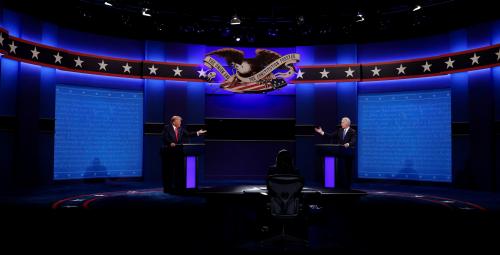
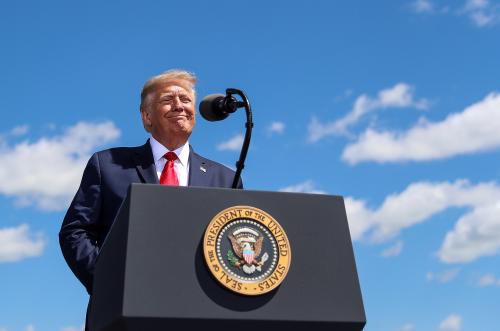
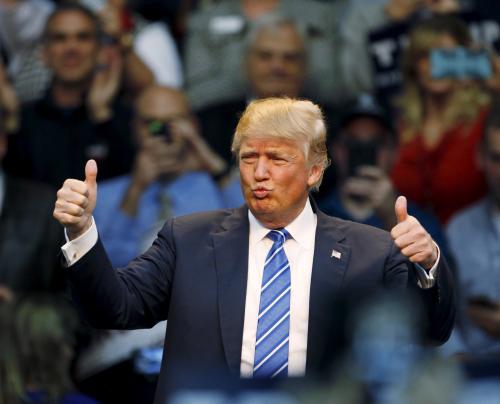
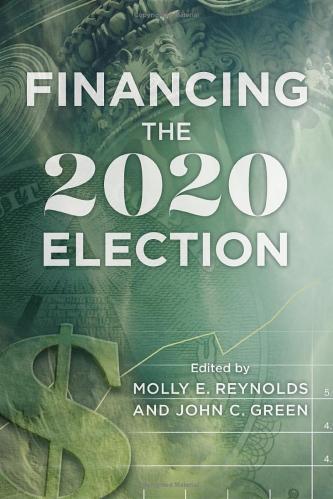
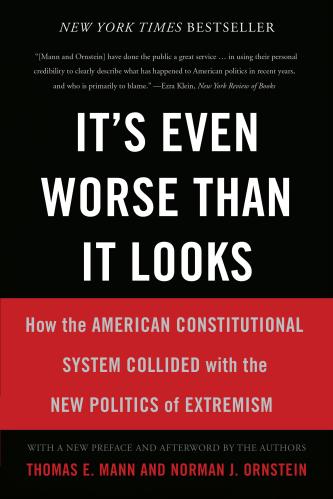
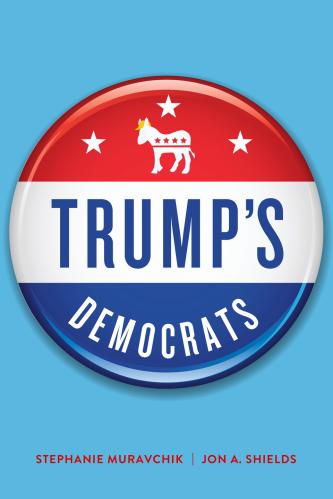


Commentary
Why America’s next president won’t unite us, whoever it is
November 7, 2016